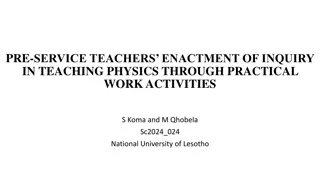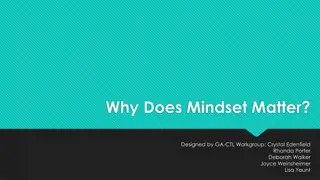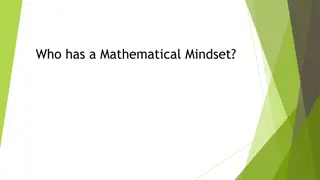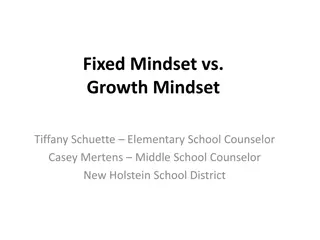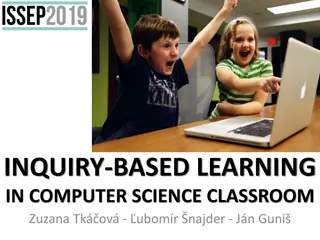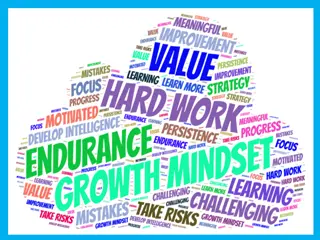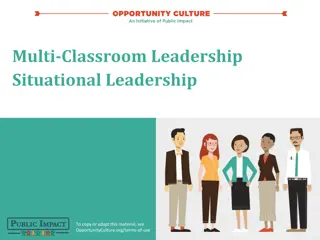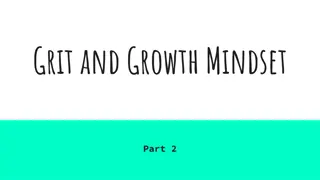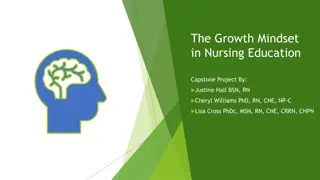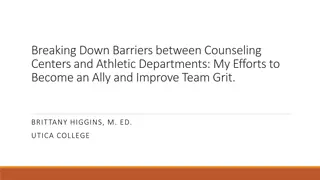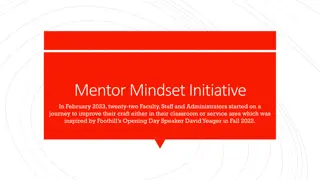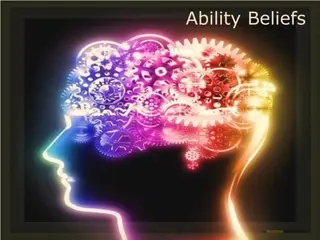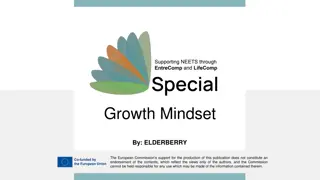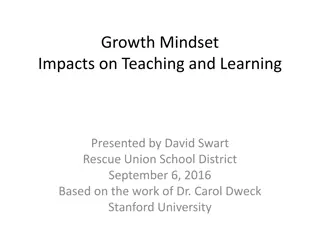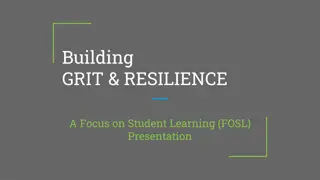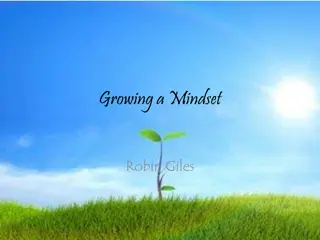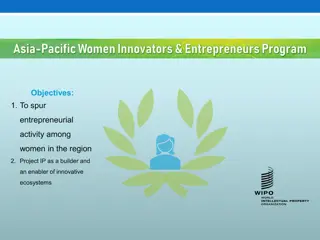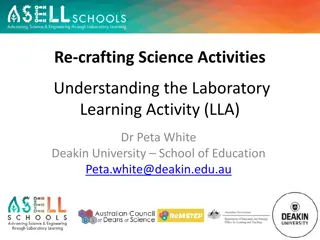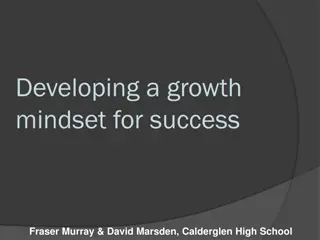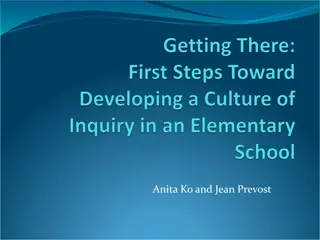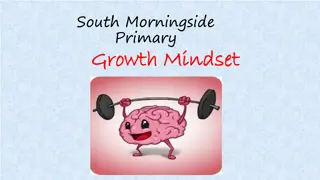Developing a Growth Mindset for Research and Inquiry in Higher Education
Explore the importance of cultivating a growth mindset among students for successful research and inquiry work in higher education. Discover the characteristics of fixed and growth mindsets, learn from experts like James Dyson and Professor Carol Dweck, and engage in activities to support learners in developing the mindset needed for academic excellence.
Download Presentation

Please find below an Image/Link to download the presentation.
The content on the website is provided AS IS for your information and personal use only. It may not be sold, licensed, or shared on other websites without obtaining consent from the author.If you encounter any issues during the download, it is possible that the publisher has removed the file from their server.
You are allowed to download the files provided on this website for personal or commercial use, subject to the condition that they are used lawfully. All files are the property of their respective owners.
The content on the website is provided AS IS for your information and personal use only. It may not be sold, licensed, or shared on other websites without obtaining consent from the author.
E N D
Presentation Transcript
Learning to fail: changing student mindset to develop the learning resilience required for research and enquiry in HE Dr Udaramati Pope Academic Practice Consultant, CPLD
Padlet address for this session http://padlet.com/udaramati_pope/dweck 02 October 2024 2
What I want to introduce you to today the characteristics and qualities students need to be successful in research and inquiry work the implications of a fixed-mindset and growth-mindset attitude for HE learner behaviours and outcomes, with specific focus on research and enquiry two ways we can support learners in developing the growth mindset that research and enquiry work require
Activity 1 Individual activity Find a copy of the handout on your table Read the three statements in each section Mark the one you agree with most in each section Save this for later ..
So what qualities do students need in order to engage successfully in research and enquiry? Activity Watch James Dyson talking about the process of invention, which is one form of research and enquiry. After you have watched, using Padlet, enter words that describe the qualities/characteristics of someone who engages successfully in research and enquiry. 02 October 2024 5
James Dyson on the process of research and inquiry that resulted in the development of the bagless, dual-cyclone vacuum cleaner.
Professor Carol Dweck, Stanford University The Benefits of a Growth Mindset
Characteristics of fixed- and growth- mindsets Fixed mindset Believes intelligence is fixed, cannot change Believes talent is something you are born with (or not) Believes that if you are successful at something, it should be easy Growth Mindset Believes intelligence can be developed Believes talent is something you can develop Believes that to be successful at something, you need to make a lot of effort and practice Believes that failing is positive and is an integral part of the learning process Believes that failure is negative and indicates that you are not a success 02 October 2024 8
Now use your responses from Activity 1 to identify your own mindset tendencies More fixed mindset Mixture of fixed and growth mindset More growth mindset 02 October 2024 9
What are the implications of a fixed mindset for the undergraduate? Used to being top of the class probably won t be in HE Used to high achievement with little effort will probably be hard work in HE; may give up quickly Used to being spoon-fed and getting the right answers easily won t understand how there are not right answers in research and enquiry; can t function without showing they are right or the lecturer telling them the answers/how to do it Used to being told they are clever might not feel so clever any more leads to drop in self-esteem, and may then give up quickly, feeling a failure before they begin. May also avoid participating in the first place so that they do not have to fail 02 October 2024 10
What do research and enquiry-based learning require from students? The ability to Identify and ask questions Keep asking questions - tenacity The willingness to try and try and try to find answers or solutions with lots of failure more tenacity Making links, working out what those links are Self-assessment/peer assessment there is no right answer Look for an unknown answer - lecturer doesn t provide the answers! Self-Motivate and motivate others in the group Be able to recognise the limitations of their current skill set, be willing to develop new skills and be proactive in doing so Self-assessment of progress when the goal may be unknown
How can we support students to develop a growth mindset? Full workshop on this on July 13th details to follow from CPLD 02 October 2024 12
How can we support students to develop a growth mindset? Two ways we can approach this in HE 1. Create opportunities to fail formative assessment 2. Use feedback to praise effort and tenacity, not intelligence and correctness 02 October 2024 13
Create opportunities to fail formative assessment This does not mean more practice summative assessments . It means opportunities to practice skills/apply knowledge and understanding to build step-by-step towards summative assessments = more active learning in sessions e.g. SCALE-UP, flipped learning, and other active learning methods = more opportunities to get it wrong in a supported environment = more opportunities to get feedback on their progress, (from peer and self-assessment, not only from their lecturer!) = more opportunities to be shown how to use that feedback to improve progress 02 October 2024 14
Use feedback to praise effort and tenacity, not intelligence and correctness When effort and ability to stick with the task are recognised and rewarded, students learn to value their intrinsic appreciation for learning, and to enjoy the experience of failure , recognising it as integral to their learning. This is particularly important in giving verbal feedback during learning activities in sessions, but is also relevant to written feedback 02 October 2024 15
Even Geniuses Work Hard! Dweck, Carol (2006). Mindset: The New Psychology of Success. New York: Random House.


